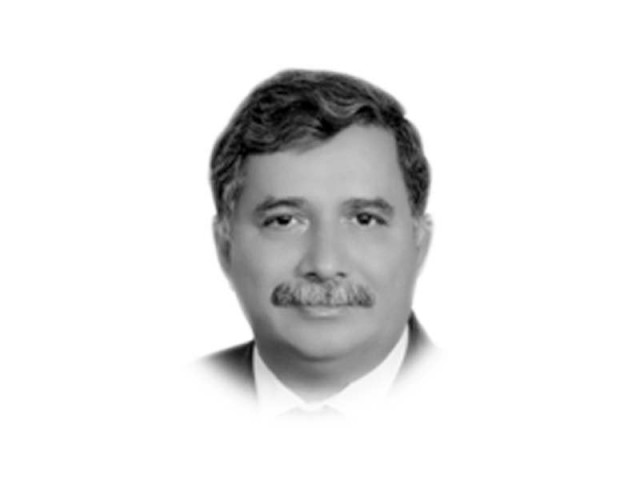Civil service reforms and governance
Those thinking out loud generated new hopes for change in quality of life of citizens but nothing tangible came out

The writer is a former Home Secretary and a retired IG. He currently heads a think tank, Good Governance Forum, and can be reached at aashah7@yahoo.com
While business as usual was going on and all hopes of change were about to die, the print and electronic media are once again abuzz with the news of the government’s move regarding the retirement of civil servants. In this respect, the government has prepared the Civil Servants Rules 2019, whereby civil servants with a poor performance would be sent on premature retirement.
Apparently the proclamation sounds well. Bureaucracy, composed of civil servants, is an important tool of governance. Efficiency, effectiveness, transparency, accountability, rule of law, merit and curbs on corruption are essentials of good governance. These attributes are augmented with quick decision-making and key performance indicators. Certainly, all institutions are for the good of the people and can deliver if they possess the aforementioned values. Therefore, only high performers should be maintained.
While Dr Ishrat Hussain and his team might have all the good intentions to reform the system for the good of the people, the question is: what is the basic ill? Is there something wrong with the existing civil service? A close scrutiny of the whole system suggested that one of the most competent candidates through a robust system of Central Superior Service Examination make it to various occupational groups. They undergo an intensive common training programme of nine months followed by specialised training in their own academies. This again is supplemented with field training. They further undergo in-service training till they reach BPS 21. Of course, the training manuals need upgradations with the dictates of time. There is no fault either in the system of examination or training, which is based on merit. Then where is the fault? As far as showing the door to the incompetent is concerned, the existing Efficiency and Discipline Rules are quite explicit, clearly mentioning therein that “ceasing to be efficient” amounts to misconduct. Thus a civil servant on that account cannot only be made to retire but can also be dismissed. Therefore, what is the need to reinvent the wheel?
The real catch is the environment in which they operate after graduating from the academies and the implementation of law and policy. A civil servant will always be as good, bad or indifferent as its political or military masters. On landing in the work environment, he or she finds that the much-trumpeted policies of posting and transfers, allotments of officials, scholarships, foreign training and postings are not being followed. The instinct to survive, forces him or her to cooperate with those at the helm of affairs, barring a few exceptions.
The tenure of the office of a civil servant is not only a safeguard against undue interference but also ensures consistency of policy, enabling them to assess, plan and build a team to achieve the set goals of the organisation. In this context, the Supreme Court of Pakistan, in the Anita Turab Case, ruled that in matters relating to the tenure, appointment, posting, transfer and promotion of civil servants the executive authority should not exercise its jurisdiction in an arbitrary manner and against the law. Similarly, the policy of the government in regard to the tenure is enunciated in the Fundamental Rules, which says that, “The normal tenure of an officer on the same post should be three years.” But this rule is being violated with impunity. However, in total departure with the fundamental rules and the Supreme Court’s judgment, the federal and provincial governments have adopted a policy of reshuffling bureaucrats without letting them complete their tenures.
The reforms also speak of functional specialisation but ignore other cadres, ministerial staff as well as the provincial services. The provincial services have a greater proportion of share in the administrative machinery. They have been able, through their associations, to encadre innumerable seats in 18, 19, 20 and 21, even against the technical cadres such as Inspector General of Prisons, Director General of Prosecution, Chairman Text Book Board and also upgraded posts of Secretaries from 20 to 21. The officers of the Central Superior Services have to go through a stringent process of ground checking by the intelligence agencies, not only on promotions but also on postings. But no such criterion has been observed for the provincial services. Officers with tainted reputation and low IQ level get coveted postings and promotions. Officers who gained notoriety for purchasing the office of PA Khyber and other agencies not only get promoted but enjoy important positions in the field to date. Civil officers with inquiries or criminal cases pending against them would be deferred for promotions in the past, but today even officers undergoing NAB trials and having served prison sentences for a year or two, are enjoying policy positions. Similarly, no objectivity has been observed in the matter of promotions. Officers twice or thrice superseded have been promoted to 21 and 22. Not citing reasons for ignoring an officer from promotion is against transparency and action in an arbitrary manner. The Orya Maqbool Jan Case has laid down the principle that such promotions have to be made on merit. Denial of promotions to officers in the order of seniority is thus also against the principles of good governance.
The perception and past tract record of civil servants holding policy positions in the field and secretariat through federal agencies, and sidelined civil servants with tainted reputations, needs to be evaluated. Together with this, read the existing laws and policies and ensure their implementation.
Published in The Express Tribune, December 14th, 2019.
Like Opinion & Editorial on Facebook, follow @ETOpEd on Twitter to receive all updates on all our daily pieces.















COMMENTS
Comments are moderated and generally will be posted if they are on-topic and not abusive.
For more information, please see our Comments FAQ